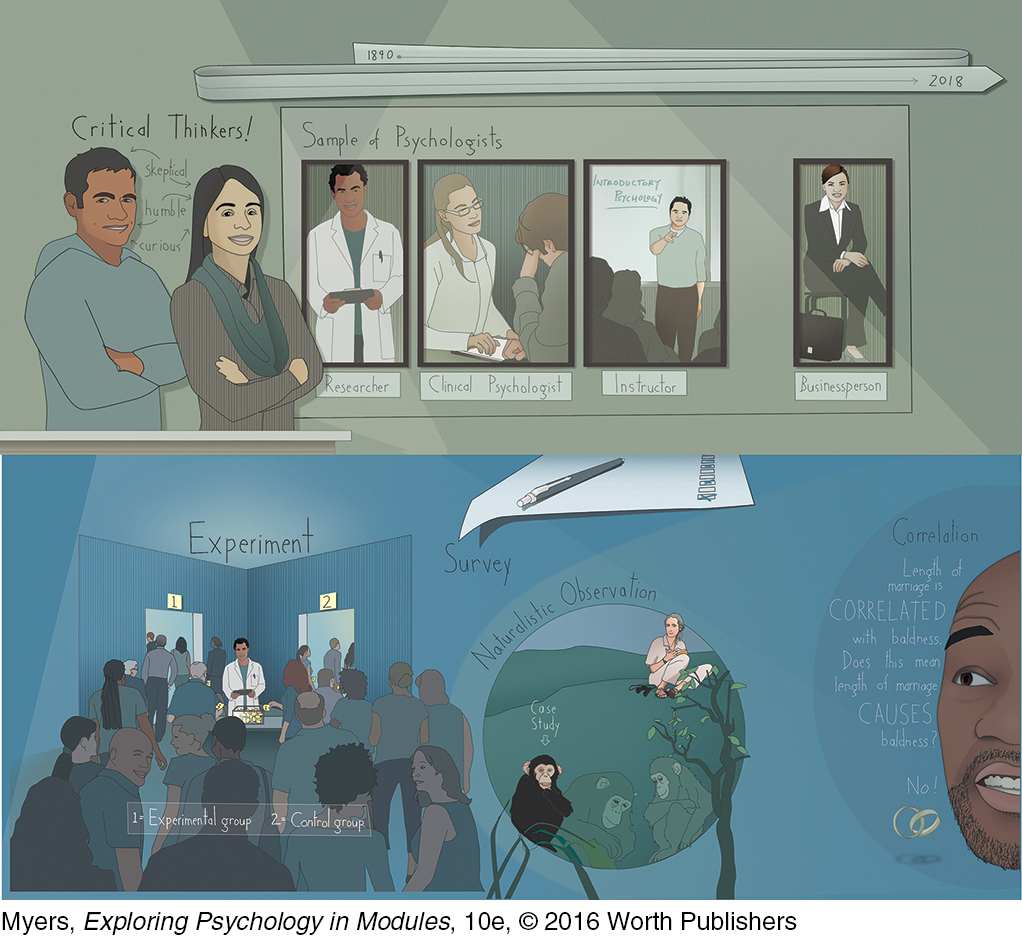Chapter 1 Introduction

Thinking Critically With Psychological Science

HOPING to satisfy their curiosity about people and to relieve their own woes, millions turn to “psychology.” They watch television shows aimed at helping people cope with their problems, overcome their addictions, and save their marriages. They read articles on psychic powers. They attend stop-
Others, intrigued by claims of psychological truth, wonder: How—
In working with such questions, how can we separate uninformed opinions from examined conclusions? How can we best use psychology to understand why people think, feel, and act as they do? In Module 1, we focus on the importance of scientific and critical thinking, trace psychology’s roots, and survey the scope of this field. In Module 2, we consider how psychology’s researchers put the scientific method into action to learn more about this fascinating field. 